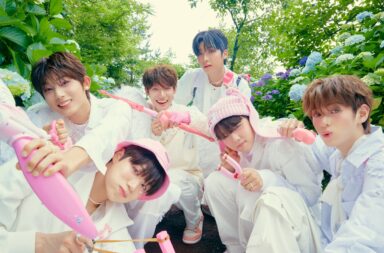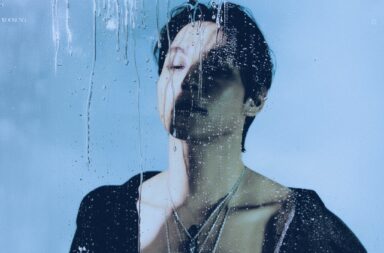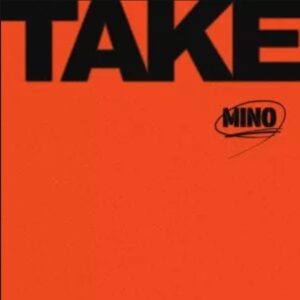
YG Entertainment has been releasing an avalanche of content in 2020, particularly by their notoriously stingy standards. iKon and Winner had comebacks. AKMU’s Suhyun and Treasure’s Bang Yedam went solo. Speaking of Treasure, they have been steadily active since their debut in August. Even Blackpink had an extended promotional period, leading up to their first full album.
Amid the hustle and bustle, Mino’s long-awaited solo comeback has gone slightly under the radar. It is certainly not being ignored. It is also not being shouted from the rooftops in the way you might expect for the follow-up to 2018’s acclaimed XX and its hit title track “Fiance”.
That’s a shame, because Take has a lot worth paying attention to. Over the course of 12 largely self-produced songs, Mino paints a clear picture of who he is as an artist and a songwriter. His strengths as a composer are displayed. His weaknesses as a lyricist are laid bare. That means Take is far from perfect, but certainly worth a listen.
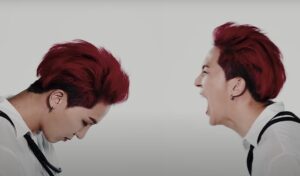
One of the best parts of Take is how it combines two contrasting musical styles into a united whole. Some songs are full of aggression and adrenaline, like album opener “Love and a boy”. The track starts calmly enough with a slow verse from Mino and a melancholy electric guitar. 30 seconds into the track, Mino’s screaming and the beat has dropped and your heart is pounding. It is a great intro to Take, locking listeners in immediately.
Other songs are dreamy, filled with synths and Mino’s not particularly tuneful yet strangely compelling rap-singing. “Daylight” is a great example of this, drawing you into its hazy atmosphere one mournful holler at a time.
Some of the most memorable tracks on Take are the ones that meld the album’s two musical approaches. “Pow!” flips between sweetly melodic verses and a booming chorus that lives up to the song’s name. It lulls and jolts you in equal measure, keeping you engaged and just a bit on-edge.

“Click / Han river view” begins as a mellow and playful tune. Then at the three-minute mark, it abruptly switches into literally a different song. Again, the title is a spoiler, but there is something shocking about the changeup no matter how many times you hear it. The grittier nature of the back part of “Click / Han river view” compliments and enhances its front half, making this track more than a gimmick. It is a witty and successful experiment.
Mino has a strong individual musical identity, strong enough for him to battle himself in tone and mood throughout Take and still come across as cohesive and authentic. These qualities also make him great at duets. He can adapt to his musical conspirator’s style without losing himself. Past examples of his penchant for partnering include collaborations with Zico, Lee Hi, and fellow Winner member Jinwoo.
Take is full of duets, five to be exact, and some are excellent. “Wa” features Zion.T and together, the pair cast an eerie spell. The song’s magic comes to a head in its final minute, a no holds barred blast of repressed emotion and layered production. It is possibly the entire album’s strongest musical moment. Zion.T is technically absent from these 60 seconds. However, without his contribution earlier in the song, the climactic excellence of “Wa” would not have been possible.
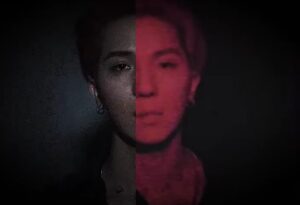
Another solid duet with a very different vibe from “Wa” is “Hop in”. Featuring DPR Live, the song is a savage smackdown of commercial K-pop and a declaration of artistic dominance. Talking down or back to seniors is a huge taboo in the industry. Thus, regardless of whether you agree with the song’s sentiments, it is illicitly exciting to hear the unsubtle bad-mouthing in “Hop in”.
Not all of the album’s collaborations are as effective. “Ok man”, an unofficial reunion of MOBB featuring iKon’s Bobby, is underwhelming. Mino and Bobby are each fantastic rappers, but their chemistry is oddly lacking. It does not help that “Ok man” is a pale shadow of “Hop in”, treading the same lyrical territory less well. Where “Hop in” was clever and pointed in its barbs, “Ok man” is flimsy and unoriginal:
When I angry rap, Korean-American said
Oh sh*t yo look at that
I’ve never seen like that
Eyes become saucers Ok
Oh man You can’t rock this
I’m on another level
Repeating lyrical topics is a pattern on Take, brought about by Mino’s seeming inability to write about anything besides fame, sex, and his own fabulousness. There is nothing necessarily wrong with having a storytelling focus. However, XX centered on exactly the same things, and that was two years ago. For someone as talented as Mino to not to have evolved at all since then, well that is a bit disappointing.
His stagnant artistry takes a toll on Take, most obviously through the inclusion of a few tracks that are both musically and lyrically conventional. Unfortunately, title track “Run away” is one of them. The song’s hook is simple but catchy. However, the track never achieves a full crescendo, perhaps because its two and half minute run time simply fails to give it enough seconds to reach its potential. Ultimately, “Run away” feels unfinished and unfulfilled.
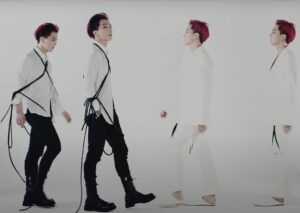
“I want to” featuring meenoi is inoffensive, yet also lacks momentum or payoff. “Sunrise” is just plain bad. There is a sincere message hidden somewhere in the whiny melody. But when almost half of a song consists of the repeated refrain “She is sunrise my rise (My everything, Baby you’re my everything)”, it becomes hard for listeners to experience anything besides boredom.
Songs like these could make a listener want to give up on Take. So might the lyrical content of the aforementioned musically spectacular “Pow!”, which comes close to crossing the line from charmingly raunchy to sickeningly sleazy.
Indeed, there is a thread of misogyny that hovers over much of Take. It never fully permeates the album, but it does occasionally peak its head out. For instance, all of the songs singled out for derision in “Hop in” are by female idols. I guess Mino and DPR Live just like making themselves feel big by picking on girls.
Right as you are sharpening your pitchforks and getting ready to fly the coop, a track like “Book store” featuring BewhY comes on. Its childlike instrumentation, staccato raps, and relatably petty relationship woes fill your ears, and you are a contented listener once again.
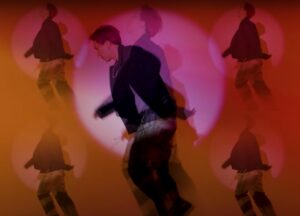
There are also occasional sparks of lyrical promise, most notably in “Love and a boy” and album closer, “Lost in a crowd”. These songs are less linear in their narratives, yet far more emotionally compelling than most of Take. There is a hint of genuine vulnerability that is intriguing. Hopefully, Mino will challenge himself to dig deeper into this part of his storytelling in future. Regardless, Mino is to be commended for ending his album with the bitterly beautiful lines which cap “Lost in a crowd”:
When I talk about being lost in a crowd
No one listens, no one understands, and they say
I know, I know, I know
I know, I know, I think I know
Musically, Take provides little to complain about. Mino is a brilliantly versatile composer and producer, and this album is a showcase of his finesse and creativity. Take is a spectacular sonic achievement.
Lyrically, not so much. It is (still) all about the stardom and the females. Mino has some entertaining things to say about these topics, as well as a handful of cringe-inducing tendencies. Neither are enough to satisfyingly fill a 12-track album. That is why, taken as a whole, Take is both wonderfully fulfilling and deeply disappointing.
(YouTube. Lyrics via Youtube[1][2][3]. Images via YG Entertainment.)
